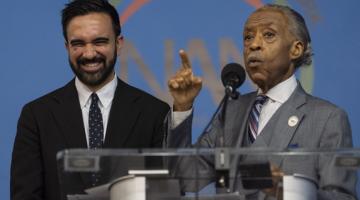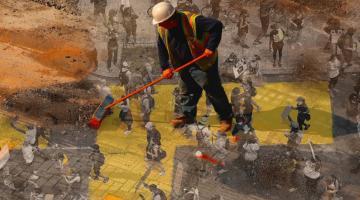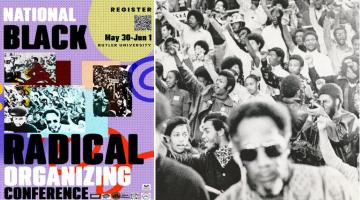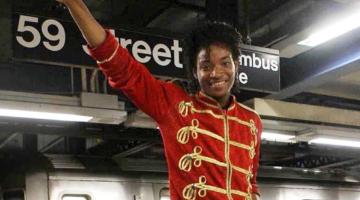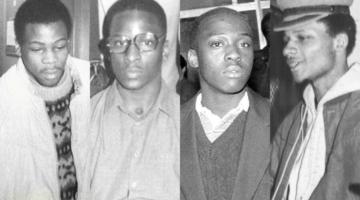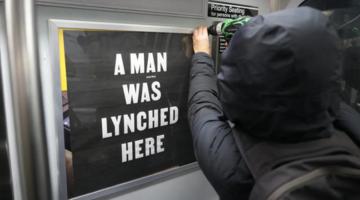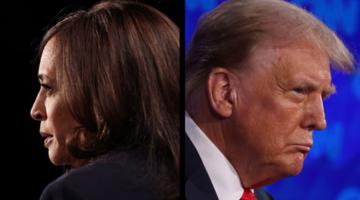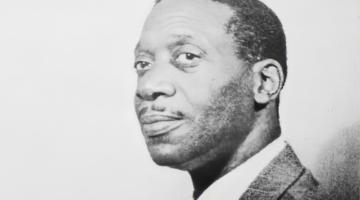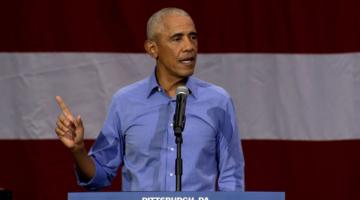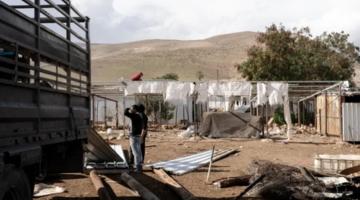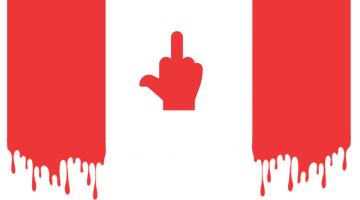Charles Barron dissects the NYC mayoral race, Mamdani’s struggles with Black voters, and why independent Black radical politics are essential.
Two weeks ago I had the opportunity to chop it up with the venerable and intrepid Charles Barron. A veteran of New York City (NYC) and New York State politics having served as both a City Councilmember and State Assemblymember, Mr. Barron weighed in on the current Mayoral race in NYC that saw the meteoric rise of Zohran Mamdani who won the primary for the Democrat Party.
Since earning the party’s nomination, Mr. Mamdani has been subjected to profound Islamophobic attacks and false allegations of antisemitism from the right wing as well as members of his own party. And it should be noted that many New York-based Democrat Party lawmakers including Representative Hakeem Jeffries, Representative Ritchie Torres, and Senator Chuck Schumer have, at this time, refused to endorse Mr. Mamdani. Mr. Barron and I discussed reasons why this is the case as well as another emerging criticism of Mr. Mamadani, his poor performance with Black and poor/low-wealth voters during the primaries. Mr. Barron, in part, attributed this poor performance to the structure of the Democratic Socialists of America who, he believes, fail to communicate how their policy platform will specifically benefit Black people and improve their material conditions. To this end, Mr. Barron stressed the need for truly independent and radical Black political and organizing formations and organizations to intervene the malfeasance of both “major” political parties and ensure that lawmakers and political systems serve the needs of Black and all poor and working class people.
My discussion with Mr. Barron remains germane as we are now observing fissures within the progressive left at a time when the emergence of figures like Mr. Mamdani as well as Omar Fateh, another Democratic Socialist who is running to be the next mayor of Minneapolis, Minnesota. At the center of the progressive left kerfuffle is Representative Alexandria Ocasio-Cortez, a key ally and advocate for the Mamdani campaign, who is being subjected to consternation for her recent vote against an amendment introduced by Representative Marjorie Taylor Greene that would have ceased funding for Israel’s “Iron Dome.” Even the Democratic Socialists of America, issued a statement condemning Ocasio-Cortez’s recent vote.
It will be interesting to see how Mr. Mamdani responds to the malaise and what role Ocasio-Cortez will play in his campaign during the coming weeks and months as it’s also being reported that he is shaking up his campaign with Democratic National Committee veterans who worked in the Obama White House, the failed Kamala Harris presidential campaign, and even operatives who worked for Andrew Cuomo, who has opted to stay in the race as an independent party candidate. These recent events have raised questions about Mr. Mamdani’s overarching strategy and his potential approach to governing should he win November’s general election.
The audio version of my discussion with Mr. Barron can be accessed here.
All right, so, Mr. Barron, first and foremost, I would just like your general impressions of what is happening and what has happened with the New York City mayoral race, which, of course, led to the victory of Zohran Mamdani for the Democrat Party nomination.
Well, first of all, the Democratic Party establishment is rocked, not only in New York, but all over the country. Secondly, there are three groups that really impact politics in New York City. That is the Democratic Party, the Working Families Party, and the Democratic Socialists of America, DSA. Thirdly, these parties, especially DSA, run their handpicked Black candidates that are not coming from our Black historical perspective in our neighborhoods, but these are hand-picked candidates by DSA, and they have to follow the DSA line. Thirdly, bear in mind that Zoran Mamdani, he won the Black communities that were basically gentrified. And when you look in, take the 57th Assembly District, where Hakeem Jeffries was the assembly member, and Letitia James was a council member in that district. When they were in office, that district was 72% black. By the time they left office, it was 32% black and 38% white.
And that district, where Jabari Bridgeport won, and Farah Souffrant Forrest, Haitian sister, beat Walter Mosley, who was Hakeem's protege. So when we move into this arena, and what we're facing now, when I say we, Black radicals, revolutionaries, we're facing a, I would say, there's a vacuum of independent black radical leadership being empowered. We, meaning Operation Power and Inez Barron and myself, we filled that vacuum in East New York. We are probably one of the only Black, if there is any others, Black radical revolutionary elected officials that didn't need DSA, the Democratic Party, or the Working Families Party to win a council seat and an assembly seat, and the male leadership and the female leadership took control over the community board, which we still have to this day, and judicial delegates and county committees.
This is something Ocasio [Cortez} didn't even do in tradition. She didn't win all of that. She got the congressional seat, became a superstar across the nation, and then wound up trying to encourage people to support a zionist called Biden. And then voting for budgets that had $800 to $900 billion for the Pentagon to continue imperialist wars abroad. So that's what DSA brings, even Bernie Sanders, their brand of socialism. And I don't mind using the Democratic primary as a tactic to win a seat in the 90% Democratic district. That's what we did. But we maintained our revolutionary ideology. We took on the mayor, the Speaker of the City Council, the Speaker of the State Assembly, because we have both seats on this and I, the governor, we took on Wall Street, we took on the real estate industry.
We are not gentrified. East New York when I came into East New York in 2001 is when I won 2002. I was sworn in. It was 90% black and brown. Wow.
Here it is 20 some odd years later, and it's 91% Black and Brown. We lost white population from 6, 7, 8% down to 3.5%. And we got an increase in the black and brown population as Harlem was gentrified. Yes. Clinton Hill was gentrified all over the place, you know, gentrified, but not with the Black, radical socialist world. So why wouldn't the Mamdani team, DSA, reach out to that force?
I'd like to speak to you about that because I mean everybody knows now that Mamdani of course did not do very well with the aggregate of Black votes in New York City, he won younger Black voters. What do you think this is attributed to? Why?
You know, this is a gentleman who is running on a seemingly poor and working class people platform, you know, free and fast buses, tinkering with the police budget to reinvest those funds into more social programs. Why did this not resonate, not just with Black voters, by the way, as an aggregate, but also poor and working class New Yorkers as a whole? One, because we, as Black folk in particular, and poor people in general, never benefit when you put us in a universal pocket, a universal plan, free bus rides for everybody, you know, 3k for everybody. So I don't have to talk to y'all [Black people] specifically, it's for everybody. Never in our history, Black people, have we ever benefited when it was put in a universal atmosphere, a universal climate. We always had to be specific. Voting Rights Act for Black people. Yes. Civil Rights Act for Black people. Remember that housing policy for Black people? Yes. And then we expanded it for poor people. So he spoke nothing to that. People said to me, well, the reason why he won, because he spoke to the issues of poor people, poor people didn't vote for him. If he spoke for people's issues, then why is it that he lost in my district, which is a 30, 40, 30% poverty, a double digit unemployment. We had to put a little dent in it, but just we, no City Council. How come they went with [Andrew] Cuomo?
How come other Black communities went with Cuomo? He won some Black districts. So my thing is that this is a DSA, another white left perspective, when I was in the Black Panther Party, we had challenges with the white left. And all the time, when dealing with the white left, and they'll do climate change, and we're down with that. We know we got to save the planet. And they'll take on these issues that really don't directly impact the Black community. It impacts everybody. But directly, we are not equitably oppressed. So there shouldn't be an equitable response. So once you see that, then you say, well, if I'm 30, 40% poverty in Black and Brown neighbors, you got Indigenous people on reservations, concentration camps in one of the richest states in the country and one of the richest countries in the world. Heard nothing. Right.
Heard nothing about reparations, even though I think he supports it. He was certainly silent on it throughout the campaign. Heard nothing about, specifically, I see that the Black community is suffering high poverty. I have a plan to deal with poverty in the Black community, in particular. And of course, everywhere, but especially in those communities that are more impacted than others. So I think that his campaign shows that people are frustrated with the Democratic Party, and so people will look for other alternatives. But he's making a big mistake, even if he wins. And he has a good chance of winning, but I wouldn't take it for granted because this is not going to be a regular general election when you win.
So you have a nervous frightened Wall Street, a nervous frightened real estate industry, a nervous frightened Democratic Party who next year they're trying to win the House [of Representatives], win back the Senate. He shook up the whole political environment. And quite frankly, I'd rather fight to make him respect us more than to have these sellout negroes in the Democratic Party, these sycophants, these neo-colonial puppets of the Democratic Party. I'd rather fight Zoran to respect us and say, Zoran, don't play us like most Black leaders do in the Democratic Party, don't play us all on and run away from Black radicals.. You can't run to the Jews and say you're gonna address the Jews to make sure that they understand that you're gonna protect them and you're not anti-Semitic and you don't run to Black people and say, I'm gonna make sure that you can trust me - that I'm gonna be with you. Not only am I gonna speak out against the genocide in Palestine, I'm gonna speak out against the genocide in Afrrica. I'm gonna speak about that. We need to get rid of AFRICOM. Yes. In the false Narrative of stopping terrorism just like they wanted to stop communism. They're there to exploit the natural resources. The great paradox of Africa is that it's the richest continent in the world with the poorest people. Yes, imperialism colonialism and neo-colonialism I don't hear the great progressive speaking on those issues. So to me, I'm really concerned. I already see some characteristics of it. And I've seen this with other DSA candidates when they got into [New York] City Hall, push that socialism aside, push that revolutionary talk aside. I got to get me a chair of a committee. So I'm going to vote for [City Council Speaker] Adrian Adams who is a real estate flunky, a real estate puppet, along with Mayor Adams, I called it the Adams family budget. They came together and put together a budget that protected real estate. And right now Adams is trying to take away power from the city council to determine land use decisions. Yeah. Yeah. What was that? What's that?
The city of yes. So-called city of yes.
Right. Or really, the city of no. And Adams is not an option. He is the worst mayor since Rudolph Giuliani in that he brought back Giuliani's street crime unit with still arrest, stop and frisk 90% Black and Brown youth. He is against no cash bail, which we passed in the state assemblies, Zohran and I and others passed, which simply says if it's a minor offense, and you're a pretrial detainee, and you didn't hurt nobody, and there wasn't no grand larceny, it was jumping the turnstile, it was loitering, littering, it was a minor offense, you shouldn't have bail. You should be released in your own recognizance. This mayor was against that. And this mayor sold his soul to Donald Trump so that he can stay out of jail. And now Trump is using him to go into Rikers Island, the same people he doesn't want to release on their own recognizance, and bring ICE in there.
And this is a Rikers Island, by the way, that Adams's predecessor, de Blasio, signed a bill, the so-called Renewable Rikers Act. It's supposed to be shut down next year and turned into a renewable energy hub. And we can talk about that. But I have two more questions for you. I want to go back to this issue of the Black Misleadership class, because it seems like two games are being played by them. On the one hand, you have former Governor Paterson just coming straight up, right, and referring to Mamdani as, quote unquote, cyanide for New York City, and is already trying to coalesce those forces you just named to defeat Mamdani in the general.
Then you have this other tactic being played by our favorite, no pun intended, House Negro, Hakeem Jeffries, who on the one hand isn't endorsing Mamdani and kind of saying, oh, he ran on a platform of affordability, but also trying to stick this false label of anti-Semitism on Zoran.
Can you speak about how the blackness leadership class is operating thus far and why Zoran needs to have a better, let's call it mechanism, to deal with the inevitable pigmentation politics that are already coming his way? That's a very good question. And you know, the blackness leadership class
First of all, Governor, former Governor, Paterson is an embarrassment. He needs to go back wherever he was and collect his little money they paid him to say this foolishness. And he has no influence over anybody. But I think that Hakeem Jeffries, AIPAC is not going to allow him to support Zohran. Right and so many of the others. And when he comes up with, you know, foolish remarks and globalizing the Intifada, you know, he needs to speak to that. What kind of stupidity is that? First of all, he never said anything like that. And secondly, if he did, he has a right to support a people who are victims of genocide. They're resistant. By any means necessary. You know, he ends up throwing rocks at tanks, and if you tell me you want to do that, he has a right to support anything he wants on that question. Because that's a false narrative. It's basically the Democratic Party, and here's what's happening across the world, American imperialism is declining across the globe.
American imperialism and the American dollar is a losing battle across the world. And this is why Hakeem and the Democrats are panicking. One, this is the revolution. Oh, yes. in West Africa with Ibrahim Traore, Tchiani, Goita, of Burkina Faso, of Mali, and of Niger, and several others have joined them. Chad just joined, I think it was. And Togo as well. So that's expanding, and that's important to see because in the 1960s, when I was in the Black Panther Party, we saw the rise of Kwame Nkrumah, and Nkrumah liberated Ghana and all of the African independence movements were liberated and moving toward socialism.
But they got in office and didn't get a chance to really transform the economy into a socialist economy. Lumumba was gone in, what, six, eight months? He was assassinated. Kwame Nkrumah was in China, in Peking, China, on his way to Hanoi to support the Vietnamese war. He had a coup d'etat and had to go to Guinea. And to the credit of Sekou Toure, he became a co-president with Sekou Toure in Guinea and they got Bambela out, so the African revolution around socialism was aborted. And now, with the rise of the Sahel States, something happened that has not happened in history, except at the battle of Adwa in Ethiopia, where they beat up, they stopped the Italians from colonizing them in 1898. But something exciting about Sahel. Not only did they increase, expand on the work of Thomas Sankara, another one who got in, was pushing socialism, didn't make it, his own boy assassinated him. So this is the first time I've actually seen, except for maybe Zimbabwe and Gaddafi in Libya, where they literally kicked out the oppressor. Straight up. They said, France, get the hell out of Africa. Straight up. Take America with you and leave the gold behind. Yep. And AFRICOM. Take AFRICOM with you, too, in Niger. AFRICOM, all of that got to go. So you're seeing that happen in the economies of these three countries, and they are actually extending, building upon the concept of revolution. Because revolution is not just taking over a political party, taking over the political system, but it's the economic system. And this is where the neocolonialists come in, you know, and ECOWAS, the Economic Community of Southwest African States, ECOWAS, was about 15 of them. They were the neocolonial puppets of France and America.
So they're not dealing with that and that's one thing the BRICS groups came together. Yep, and it's important to put this global thing in perspective of what we need to do locally and why we have to watch carefully of the rise of Mamdani by way of DSA because it might be contrary to what's going on and revolutionary Africa and what's going on in the globe because we'll see who he makes his alliances with once he's in and he has to go from campaigning to governing.
BRICS, you're looking at Brazil, Russia, India, China, and South Africa, and that's a loosely formed coalition, and now they're up to 25 countries, Indonesia, Ethiopia, Egypt, Cuba, Burkina Faso, and so many other countries have joined. They are now up to, they can say, of the 8 billion people in the world, they have 5.5 billion of that over 50% of the world And then you look at the economic power of countries, the GDP the Gross domestic product that determined your economic influence and power. Well, 45 to 48 percent of the world's GDP.
So now we look at the G7. And there's one of the G20, back to G7. This is seven countries. I think it's Canada, France, Germany, America, Japan, and two others. Italy, I believe, is also there. Yeah. Now look at G7. 10% of the world's population? And 28 to 30% of the GDP of the world compared to BRICS. And see, this is important because in 1944, you heard of that conference, the Bretton Woods Conference. It took place in New Hampshire, right here in America. 44 countries came together. Russia bailed out. They came and bailed out and said, no,, I'm not supporting you, where you established the IMF, the International Monetary Fund at this Bretton Woods Conference, the World Bank. You established that in 1946.
The League of Nations turned into the United Nations two years after Bretton Woods. And then 1949, you now develop a military coalition of Europe and America called NATO, North Atlantic Treaty Organization. All of that developed because Winston Churchill sat down with Franklin Delano Roosevelt and said this war was on our turf and we were so damaged, so America, you take the lead. And we'll back the dollar by gold, set up all that that I just mentioned, these institutions, and we will control the global economy.
That's what they did then, and now it's declining. It is going down. So you have a Trump that emerges out of that. And the good thing about Trump is the same thing that I heard one commentator say. The good thing about apartheid in South Africa, which is different than the racism in America, is that they tell you, yes, we're racist, and you can't live there. America, you have to prove to your people that they're racist. You have to prove, you know, you have the challenge of saying no, no, no, no. You have to come up with a narrative to show this is colonialism, this is capitalism, this is not good for you, you know. You don't have to prove that anymore. If Kamala or Biden would have won or when they were in, I turned purple trying to prove to our people that this was not progress. Yes. That this was something detrimental to our movement, our people, our life, the continent of Africa. This is imperialism. So we got to be careful that when we have these elections that we don't, we need to identify this colonial capitalist system and say,
These two parties are fighting to see who's going to be the administrator of a colonial capitalist system, and particularly the impact it's going to have on our domestic colonies of capitalism called black communities. So this is what DSA and Zoran is coming into. Now, as they emerge into that, we have to fill that void. We're having meetings now. We're going to fill that void.
But an answer to all of this is to build an independent Black radical political movement. In addition to that, hit the streets with the demonstrations, the rallies, and sometimes we've got to get some self-defense in countries. We need to do just that by any means necessary. So that has to happen like the Haitian community did. They said, no, you're not taking our people. They came together, kicked ICE’s butt, and got them out of there in Brooklyn, right here in New York.
So while all that's happening, It gets back to my original point, power. Power is the great equalizer. When you have power, that is the control over the destiny of our communities and the institutions that are in our communities. When we determine what's going to be built in our communities, who are we going to relate to?
What kinds of programs are gonna come into our communities? Who's gonna control the means of production, the economy of our communities? That is power when you have self-determination. Martin Luther King had a very interesting quote. He said, the ghetto is a domestic colony. And we need to transfer power to the residents of the ghetto so that they can determine the destiny of their communities. That is the identification, that is the definition of new politics. This is Dr. King. So I think that's where we are right now. Still that voice. DSA in New York, Democrats in New York, Working Families in New York, they got it. We now have to say to Zoran, when you go to Sharpton and when you let Letitia James introduce you at rallies, one who was against you with Adrienne Adams - left her little celebration and came to you the same night to introduce you. When you allow for that kind of hypocrisy and you don't call on the Black radical community and say, I'd like to meet with you, to hear what you have to say, to hear what's on your mind. If you don't even do that, it tells me we got a struggle on our hands.
Absolutely. Because, you know, I just want to name this, right? Because it's not like you're coming from out of nowhere, Mr. Barron. Unlike many of these talking heads who you see, um, you know, opining on the Mamdani situation, you actually served with him. You literally served with him in the New York State Assembly.
I was in the state assembly with him. Convinced him and others to pass my reparation bill, support reparations and vote against budgets. You know, we have 10 appropriation bills up in Albany to vote against some of those budgets. And we worked together, talked together. And I called him one time. I said, hey, Zohran, man, I saw you on TV, man. You slammed Jeffries. He was at some grab. But Jeffries was speaking. He got up and slammed him. I said, right on, my man. That's good for you. We talk just like that.
And now, nothing. And once again, I'm not in the Lonely Hearts Club looking for someone. Right, right. Of course not. No. My thing is, even if he called now, I said, I'm dealing with a whole group of Black radicals and progressive people. You need to meet with them and us, not with me. I ain't looking for a personal meeting with Zohran. My strategy was to never do that. Even when I went to Albany, Governor Cuomo called me up and wanted to meet with me. I said no. Eric Adams was telling all the people he knew who knew me, I want to meet with Charles. No. Mayor Bloomberg told his staff, Barron's beating me up in public. I don't want commissioners meeting with him. I walked over, the Speaker called me up. I said, well, let me tell you something. I'm going to meet one of his commissioners right now. I dare him not to meet with me. He's got to call the cops. Before I can get half way to his office, they call me back. Uh-oh, it's off. Everybody can meet with you. Pardon me if I don't say thank you. So I think the best strategy for the Black radical community is to build, to grow, to build a permanent structure that can do two things. Get the streets organized around issues and raise our consciousness, people's conscience around housing, healthcare delivery, safety in our community, police and all of that. And secondly, get seats of power. Yeah. With our people. So you won't have to sit here saying, Oh man, who is it? Zohran, a socialist or Eric Adams, the capitalist?
Zoran, the DSA kind of socialist. Who does some similar tactics and strategies pragmatically that the Democrats do. And remember, they're not an independent party. They run in democratic primaries, and I ain't got no problems with that. But be really independent inside there, and don't become dependent on that until you get to the point where we won't know the difference between you and them.
Anthony Karefa Rogers-Wright is an international climate and environmental liberation advocate, a racial justice practitioner, and a writer and policy expert residing in the United States with his family and their mischievous cat, “Evil” Ernie. He is a proud and active member of the Black Alliance for Peace and the Movement for Black Lives. His radio program, “Full Spectrum with Anthony Rogers-Wright,” airs on the Mighty WPFW network every Tuesday at 6:00 PM EST.


